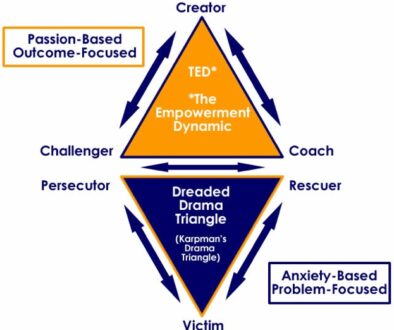The Stories We Tell Ourselves
The stories we tell ourselves are part of a never-ending story. I apologize if it sounds cliched or that I stole the opening from a movie.
Our entry into this existence came about through the story our parents were telling each other at the time. It may or may not have been a love story. Whatever it was, it set us on a path, and as we grew we added to our stories.
Contents
The Stories We Tell Ourselves

Some of the stories we tell ourselves remain finished, complete, and left in the past. A door closed and then another opened onto a new story or a new chapter of the same story.
Other stories we have carried, or perhaps they carry us through the seasons of our lives. Some of these stories we may be unconscious of and yet are to our benefit. Or perhaps they are dogging our steps in the world to our detriment.
At night our dreams tell us stories. We daydream stories. These stories enlarge our sense of self and are ways of knowing ourselves. Through the stories, we’re creating meaning for ourselves.
When people are talking to us often we’re hearing just snippets, we’re hearing what we want to hear. And from those snippets we create stories. This means something good, that means something else. And at times we don’t question what we’re hearing in case we’ve heard it wrong. We may be more interested in what we’re telling ourselves than checking in to make sure we actually know what is going on.
We tell ourselves stories about our businesses, too. I recall a story told by a motivational speaker about a meeting he had with a businesswoman. This particular speaker used to chew his fingernails quite severely. On the verge of signing the contract, the businesswoman discovered these unattractive fingernails and pulled the plug on the deal. She stated she couldn’t do business with someone who didn’t have the discipline to care for their fingernails.
In her mind, she was telling herself a story about this other businessman and perhaps missed out on a lucrative opportunity.
Stories that Don’t Serve Us
It is entirely possible that we think 50,000 to 70,000 thoughts per day according to estimations based on scientific research. And nearly 80% of these are probably negative. Given that, do we really have a chance to be positive human beings? Thank goodness we are not our thoughts and most of them we may be barely conscious of as they sail through our minds. Even so, the negative thoughts that are captured in the middle of this constant flow are creating stories, stories that don’t serve us.
We may have inherited these stories from our parents, grandparents, siblings, relatives, friends, teachers, and further down the track bosses, spouses, religion. When we notice our minds playing back these stories we need to stop and check that it is actually our story. If it is, then we need to process it further. Do we think it is true? If it isn’t, then we can reject it or perhaps it needs to be reframed to provide an outcome that is beneficial rather than detrimental to our life path.
Empowering Stories
For all those negative thoughts there are at least a few thoughts or memories that we can look back fondly on. The beautiful thing about these memories is that our mind accepts them as real at that moment. We don’t have to be physically experiencing something empowering to reap the benefits of the event.
By bringing any empowering event from our past or imagining something empowering we wish for our future our mind will produce the associated feeling in our bodies. In fact the HeartMath has a piece of research that proves the benefits of re-experiencing positive emotions. They found the levels of both DHEA (the vitality hormone) and ImmunoglobulinA (IgA) were raised by focusing on encouraging thoughts.
So when we catch ourselves descending into to negativity we can arrest the downward spiral. By bringing to our imagination an empowering story we can change our minds and hearts and bring a sense of wellbeing into the moment. The story I mentioned previously about the fingernail chewer has a parallel in my own life. I remember I also used to chew my fingernails. It wasn’t until I saw someone who chewed their fingernails worse than me that I stopped. I used the leverage of the sight of the fingers to provide me with the impetus to resist chewing my nails anymore.
Reframing our Stories

We can leverage our stories through reframing. By looking at our growing edges as challenges rather problems. Reframing our stories can build bridges for us across gaps in our thinking and believing. It can provide the impetus to scale and achieve greater rewards for not only ourselves, but also our customers.
Often we need to seek an outside perspective. Being in the thick of things we sometimes can’t see the forest for the trees. Having a mentor in this instance can be invaluable. Or sourcing a coach.
These stories that need reframing may not only be related to our business. There are other areas of our lives that could require the services of a coach or mentor. Relationships, our finances, our physical fitness needs, spiritual or mental states may need some inspiration.
Creating Meaning

The stories we hear from others and the stories we tell ourselves need to be checked for meaning. What we hear is filtered through our minds and compared to our experience then we add meaning like we add sugar to coffee. To oftentimes sweeten the message.
What we accept as a meaning may not be the meaning intended by the person we’re communicating with. It can be more prudent to communicate with questions rather than making statements about what we thought we heard. Then we can be sure when creating meaning we’re not in error, that we heard is what was meant.
Creating meaning around communication and experience involves looking at the events from different perspectives to ensure we’ve captured the essence of what happened and are not being led into delusion about it.
When I was doing Life Coach training that was one of the most pointed observations made to me, “Are you sure you’re not under some delusion about that”. Whatever it was. It certainly gave me pause to consider the experience more deeply.
Conclusion
The quote by Blaise Pascal has particular relevance to our stories.
“All men’s miseries derive from not being able to sit in a quiet room alone.”
If we can develop the discipline to sit in a quiet room alone, we may come face to face with the stories we’re telling ourselves. Those stories can provide insights. By working with those insights we can build new modes of being and actions that better serve us and the present we are creating.
Blessings



